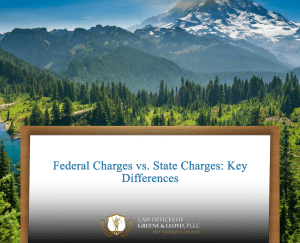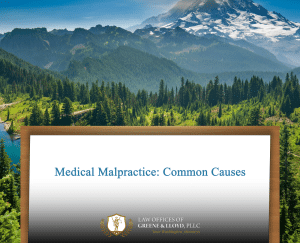## Exploring Motorcycle Accident Trends in Washington State
Motorcycle accident trends serve as an essential guide for understanding the frequency, causes, and consequences of motorcycle accidents in Washington State. Analyzing these trends provides valuable insights for riders, policymakers, and legal professionals who seek to enhance roadway safety. The data reveals important patterns related to the demographics of involved riders, common causes of accidents, and seasonal fluctuations that can aid in making informed decisions. Consequently, understanding these trends becomes fundamental for all parties involved, especially for those who may seek legal recourse following an accident.
The landscape of motorcycle riding is constantly evolving, influenced by various factors such as changes in traffic laws, rider safety initiatives, and the overall culture around two-wheeled transportation. An in-depth examination of motorcycle accident trends sheds light on the dynamics of how and why motorcycle accidents occur, thereby equipping riders with the knowledge to proceed with caution and awareness. For those who have sustained injuries or damages due to motorcycle accidents, having a solid grasp of these trends can also offer vital context when navigating the legal aspects of their cases.
Through meticulous analysis of reported motorcycle crashes, we can identify critical trends that reveal not only the increasing number of accidents but also the types of injuries sustained and the demographics most affected. By understanding the frequency and causes of motorcycle accidents, lawmakers and legal representatives can advocate for necessary changes to improve safety regulations, enhance law enforcement efforts, and support affected individuals in seeking justice.
## Definition and Scope of Motorcycle Accident Trends
Motorcycle accident trends refer to the evolving patterns observed in motorcycle-related accidents, including their frequency, causes, demographics, and outcomes. In Washington State, this includes a rigorous examination of accident reports, statistics from traffic safety organizations, and insights from various stakeholders including law enforcement, policymakers, and the legal community. By focusing on these trends, we gain a holistic view of the motorcycle accident landscape, which can be essential for improving rider safety and informing legal strategies.
These trends are typically analyzed over specific time periods, allowing for comparative assessments that reveal increases or decreases in accident rates. Seasonal variations are also a significant consideration, as motorcycle usage often increases during warmer months. This cyclical nature can result in more accidents during peak riding seasons, prompting a closer look at rider safety protocols and legal implications. Furthermore, these trends encapsulate various factors such as geographical hotspots for accidents, specific demographics at risk, and common causes ranging from distracted driving to road conditions.
The definition and scope of motorcycle accident trends also extend to technological advancements that can potentially influence these accidents. Innovations such as collision avoidance systems, automatic braking technologies, and better protective gear are altering the dynamics of motorcycle safety. Understanding these advancements, paired with ongoing trends, can provide valuable information to riders and their legal representatives when preparing evidence for potential cases.
## Significance of Understanding Motorcycle Accident Trends
The significance of understanding motorcycle accident trends stems from the critical role they play in shaping safety measures, legal policies, and public awareness. For riders, recognizing these trends can inform safer riding practices and encourage the adoption of proactive measures to mitigate risk. Awareness of common causes—such as impaired driving, inattention, and environmental factors—can influence how cyclists approach their time on the road. This knowledge is not just important; it’s vital for reducing the number of accidents and the severity of injuries.
For the legal community, motorcycle accident trends provide the foundation for building effective advocacy strategies. Attorneys who specialize in motorcycle accidents can leverage data on trends to support their clients better. By understanding the typical circumstances surrounding these accidents, legal professionals can tailor their approaches to each case, from gathering evidence to negotiating settlements. Furthermore, awareness of prevalent trends equips attorneys with the ability to better educate clients about their rights and obligations following an accident.
Lastly, the importance of this knowledge extends to policymakers and advocacy groups who are dedicated to improving road safety. Data driven by motorcycle accident trends identifies areas where legislative action may be necessary, such as stricter safety regulations or enhanced education for both drivers and riders. Being well-informed allows for stronger collaborations and initiatives aimed at reducing motorcycle accidents across Washington State.
## Legal Context Surrounding Motorcycle Accident Trends in Washington
The legal framework surrounding motorcycle accident trends in Washington comprises various statutes, regulations, and case law that govern how accidents are managed and litigated. Familiarity with local laws—including traffic regulations, negligence standards, and liability considerations—enables riders and their legal representatives to navigate the aftermath of an accident with greater clarity and confidence. In Washington, for instance, the “comparative negligence” rule is important as it determines how fault is shared when multiple parties are involved.
Riders should also be aware of the specific laws related to helmet use, motorcycle equipment, and rider licensing. Washington mandates that all motorcycle operators wear helmets, which is crucial for safety and can influence liability in the event of an accident. Understanding these legal requirements can inform decisions regarding compliance, as well as the potential ramifications of neglecting these standards.
Importantly, insight into local motorcycle accident trends can assist attorneys in predicting how cases might be resolved based on prevailing legal precedents. The nuances of various cases, such as how damages are calculated or how negligence is established, vary among jurisdictions. Consequently, being informed about these trends allows legal professionals to navigate the complexities of the law and advocate effectively for their clients.
## Real-World Examples of Motorcycle Accident Trends
Real-world examples of motorcycle accident trends illuminate the practical implications of data and analysis in Washington. Accidents can often be juxtaposed with broader social issues, such as the increase in distracted driving and the rise in the use of mobile devices. For instance, a notable trend has been the rise in motorcycle accidents during events such as Sturgis and bike rallies, which point to both heightened rider activity and potential safety oversights due to crowded conditions.
Furthermore, a report by the Washington Traffic Safety Commission revealed that certain counties experience a disproportionate number of motorcycle crashes. Analyzing these statistics yields critical insight into geographic factors that influence accident occurrences, which can inform local policymaking and law enforcement measures. For instance, enhanced patrols or safety campaigns may be necessary in high-risk areas to mitigate the trend of rising accidents.
Individuals involved in motorcycle accidents also frequently encounter complex legal disputes over blame and responsibility. An examination of specific case studies illustrates how case law has evolved to address the unique challenges posed by motorcycle accidents. These examples can serve as teaching moments for both riders and legal practitioners, helping them to understand how similar circumstances may unfold and what strategies can be employed in pursuing justice.
## Effective Steps to Take After a Motorcycle Accident
After a motorcycle accident, knowing the effective steps to take can significantly influence the outcome of any potential legal claims. The first step is to ensure your safety and the safety of others involved in the accident. This includes moving to a safe location if possible, assessing any injuries, and calling emergency services. Documenting the accident scene—including taking photos and gathering witness statements—will provide crucial evidence later.
Existence of any injuries warrants seeking medical attention immediately, even if injuries seem minor. Medical reports not only address your immediate health concerns but also provide an official record that may be critical in case of litigation. Once the initial health issues are addressed, it is essential to reach out to your insurance provider to report the accident. Keeping detailed records of all interactions with insurers will assist in negotiating claims efficiently in a potential dispute.
Additionally, consider contacting a legal professional as soon as possible following the accident. Legal consultations can equip riders with the knowledge to understand their rights, potential liabilities, and the steps necessary to ensure they receive adequate compensation. A knowledgeable attorney can guide you through the intricacies of the claims process, offering support and expertise when needed most.
## Common Missteps Following a Motorcycle Accident
Following a motorcycle accident, it is imperative to avoid common missteps that could jeopardize your case. One significant mistake is failing to gather sufficient evidence or documentation at the scene. Photographs of vehicle damage, the accident site, and any visible injuries are essential for establishing liability and supporting your claims. Without this evidence, proving your case to insurers or in court becomes increasingly difficult.
Another common error involves making statements to insurance companies or law enforcement that may inadvertently harm your case. Insurers often seek to minimize payouts, and any admission of fault—real or perceived—can be used against you later. It is advisable to limit your statements to the facts and to wait for legal counsel before engaging in extensive communications regarding the incident.
Additionally, neglecting to seek medical attention promptly can severely impact both your health and your legal position. Delayed medical treatment can complicate your case by raising questions about the legitimacy of your injuries or suggesting that they were pre-existing. Prioritizing your health and obtaining medical documentation should always come before any legal considerations.
## When to Seek Legal Counsel After a Motorcycle Accident
Knowing when to consult an attorney following a motorcycle accident can impact not only your legal outcome but also your overall well-being. If injuries arise from the accident—whether physical or mental—it is wise to seek legal counsel as soon as possible. Legal representatives can help you navigate the complex landscape of medical bills, insurance claims, and potential litigation, ensuring that you do not miss out on compensation for your suffering.
Consulting an attorney is also advisable if there is any dispute about liability, either with other parties involved or with insurance providers. If you are facing pushback or accusations of fault, having a knowledgeable legal professional assist you can prevent these issues from escalating and ensure that your side of the story is effectively communicated. This is particularly vital in comparative negligence states like Washington, where the degree of fault can significantly impact compensation amounts.
Furthermore, consider reaching out to a legal professional if you find yourself overwhelmed by the claims process. Trials and negotiations can be daunting, and having someone to guide you can alleviate stress. Attorneys who specialize in motorcycle accidents possess the essential knowledge and experience to simplify complexities, advocate on your behalf, and help you secure fair compensation for your injuries and damages.
## Advantages of Legal Representation for Motorcycle Accident Cases
The advantages of having legal representation in motorcycle accident cases are manifold, providing critical support at every stage of the process. Firstly, attorneys bring valuable experience and knowledge to the table, understanding the nuances of motorcycle accident law in Washington. They are skilled at navigating legal frameworks, which can often be intricate and challenging for non-professionals. This expertise ensures that your case is handled with the care and strategic insight necessary for optimal outcomes.
Moreover, an attorney can assist in assessing the true value of your case. This involves analyzing medical bills, property damage, lost wages, and emotional trauma. By allowing a legal professional to conduct this evaluation, you will have a more accurate understanding of what constitutes fair compensation rather than relying solely on insurer estimates—which may underrepresent your needs. Furthermore, skilled legal representation can facilitate negotiations with insurance companies, ensuring that your rights are protected and that you are not pressured into accepting an inadequate settlement.
Additionally, should your case proceed to court, having legal representation becomes even more critical. Competent attorneys can prepare legal documents, present evidence, and question witnesses effectively. Their ability to construct a compelling argument bolsters your chances of a favorable verdict should litigation become necessary. Overall, legal representation arms you with capabilities that significantly enhance the likelihood of a successful outcome.
## How the Law Offices of Greene & Lloyd, PLLC Can Assist
The Law Offices of Greene & Lloyd, PLLC offer specialized services tailored to the unique needs of motorcycle accident victims throughout Washington State. With a deep understanding of local laws and a commitment to compassionate guidance, the firm stands out as a beacon of hope for those navigating the aftermath of an accident. Their focus on motorcycle accident trends allows them to provide informed counsel aimed at maximizing compensation for clients and ensuring their rights are fully protected.
The attorneys at Greene & Lloyd are adept at analyzing accident data and applying it strategically to each case. Their experience allows them to recognize potential pitfalls and capitalize on opportunities that may arise during negotiations or litigation. Clients benefit from their ability to construct a solid narrative grounded in the observed trends of motorcyclist behavior and accident causation, demonstrating a clear line of accountability and liability for injuries sustained.
Additionally, they prioritize comprehensive client care, ensuring that each individual receives personalized attention throughout the legal process. From the initial consultation to resolution, the Law Offices of Greene & Lloyd take the time to address questions, provide updates, and deliver the support needed during such a challenging time. Their commitment to adopting a holistic approach ensures clients are not just treated as cases, but as individuals deserving of respect and justice.
## Frequently Asked Questions Regarding Motorcycle Accident Trends
## Additional Resources for Motorcycle Riders
The following resources offer valuable information and support for motorcycle riders, especially regarding safety, legal rights, and accident prevention.
The Washington State Department of Transportation provides guidelines and resources for motorcycle safety education and safe riding practices. Their website includes information about rider training programs, helmet laws, and current safety initiatives aimed at reducing accidents.
Further, organizations such as the Motorcycle Safety Foundation offer numerous resources for riders, including training courses and safety tips focused on improving riding skills and awareness. These educational tools can greatly influence rider preparedness and promote safer roads.
Lastly, the National Highway Traffic Safety Administration is an excellent resource for up-to-date statistics and trends concerning motorcycle accidents. Their reports help inform both riders and legislators about the pressing issues facing motorcyclists, serving to elevate public safety efforts.



